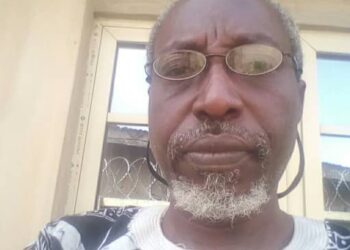The trend of Nigerian youths relocating abroad, commonly called “Japa,” has reached alarming levels, driven by many pressing factors. Chief among these is the dire economic situation in the country, characterised by high unemployment rates, inflation, and widespread poverty. Many young Nigerians grapple with the harsh realities of a stagnant job market where limited opportunities lead to a pervasive hopelessness about their futures. In a society where ambition is often met with barriers, the desire for a better life has become a powerful motivator for japa (migration).
In addition to the economic challenges, high levels of insecurity further exacerbate this trend. The persistent threat of violence, crime, and social unrest makes everyday life precarious for many. Young people often feel vulnerable and unsafe, prompting them to consider relocation as a viable solution to secure their well-being. This atmosphere of fear and instability impacts their psyche and diminishes their career growth and personal development prospects.
Moreover, the desperation many of these youths feel leads to significant personal sacrifices. It is not uncommon for individuals to sell their properties, deplete their savings, and even acquire loans in the hopes of financing their migration plans. These choices reflect a profound commitment to change their circumstances despite the risks of leaving their homeland. Pursuing better educational prospects, career opportunities, and improved living conditions fuels the great exodus, as many believe that the benefits of migrating outweigh the costs of remaining in a challenging environment.
Ultimately, economic instability, insecurity, and a lack of hope in the current environment drive this migration trend among Nigerian youths. Each individual’s journey represents a search for a brighter future, underscoring the critical challenges facing young Nigerians today.
The Call for Action: Political Responses and Policies
The migration of Nigerian professionals, particularly within the healthcare sector, has elicited varied political responses. As the phenomenon of ‘Japa‘—the colloquial term for seeking greener pastures abroad—grows increasingly prevalent, the Nigerian government has been compelled to confront the ramifications of this brain drain. Efforts have been made to formulate policies designed to retain healthcare workers, reflecting a recognition of these professionals’ pivotal role in national development. Initiatives such as improved salaries, better working conditions, and enhanced career advancement opportunities have been introduced to stem the tide of emigration.
A Lagos lawmaker representing Oshodi Isolo II Federal Constituency in the House of Representatives, Hon. Ganiyu Johnson, in 2023, sponsored “A bill for an Act to Amend the Medical and Dental Practitioners Act, Cap. M379, Laws of the Federation of Nigeria, 2004, to mandate any Nigeria-trained medical or dental practitioner to practice in Nigeria for a minimum of five before being granted a full license by the council to make quality health services available to Nigeria.”
He argued that “the government has invested so much money in training these medical doctors, on average. Recently, the United Kingdom opened healthcare visas to people visiting the UK, USA, and Canada. So, should we fold our hands?”
President Bola Tinubu recently approved a National Policy on Health Workforce Migration to manage the exodus of skilled Nigerian healthcare professionals abroad. According to Muhammad Pate, the Coordinating Minister of Health and Social Welfare, the 56-page document outlines the national strategy for addressing the dynamics of health workers’ migration while ensuring that it does not jeopardise the requirements of the nation’s healthcare system.
However, the efficacy of such policies remains a subject of intense debate. Critics often point to the disparity between these governmental measures and the observed behaviour of political elites, who were based abroad before returning home to occupy political posts, frequently seek medical attention for themselves and educational and professional opportunities for their children overseas, and are even quick to return abroad almost immediately they are out of political offices. This disconnect has raised questions about the commitment of leaders to create a conducive environment for graduates and professionals in Nigeria. Many citizens view these actions as a manifestation of hypocrisy, breeding further disillusionment and fuelling the desire to ‘Japa’.
The persistent crisis in the healthcare system, characterised by inadequate infrastructure, insufficient funding, and a lack of essential resources, undermines these retention efforts. As the government formulates strategies, a more holistic approach is necessary to tackle the issues underlying healthcare workers’ dissatisfaction. This includes addressing systemic problems such as corruption and the lack of equitable resource distribution. A truly effective solution must encompass policies to retain talent and a broader commitment to reforming the conditions that compel professionals and youths to look abroad.
Ultimately, the Nigerian government faces a critical juncture in addressing the migration of skilled workers. A renewed focus on policy effectiveness and political accountability is essential to reverse the brain drain trend and retain valuable talent within the country.
The Ethical Dilemma: Is Japa Justified?
The decision of many Nigerian youths to japa, seeking opportunities abroad, stirs a profound ethical discourse regarding migration. At the heart of this phenomenon lies the debate over human rights to freedom of movement and the moral implications of seeking better prospects in foreign lands. From one point of view, migration is a valid option for people who want to advance socioeconomically, supported by the fundamental human right to seek a better life. This viewpoint emphasises that individuals should have the autonomy to explore opportunities that enhance their quality of life, especially when local conditions are less than conducive to personal and professional development.
Conversely, critics often label this exodus as a brain drain, equating it to a collective abandonment of responsibilities toward a nation grappling with myriad challenges. This characterisation raises questions regarding the role and responsibility of political leaders in nurturing an environment that fosters growth, stability, and opportunities within the country. Are they not partly accountable for the growing desire among youths to leave? When governments fail to create adequate conditions for human capital development, they inadvertently precipitate a flight of talent, which may severely hinder national progress.
The ethical implications become even more complex when we consider the motivations behind migration. If the pursuit of knowledge and global exposure drives these individuals to relocate, does that not warrant a more nuanced conversation about the potential benefits of such a movement? Rather than framing this trend exclusively as a detrimental outflow of talent, exploring how these experiences, when leveraged effectively, could eventually contribute to national development upon their return may be more productive. Thus, understanding these ethical dilemmas necessitates a balanced perspective, recognising the individual’s rights and the collective responsibilities inherent within the societal framework.
From Brain Drain to Brain Gain: The Way Forward
The current brain drain trend among Nigerian youths poses a significant challenge to the nation’s development. However, implementing strategic initiatives can transform this brain drain into a brain gain. It begins with fostering a conducive environment that encourages talented individuals to return home after acquiring international experience. The government and private sector must collaborate to create job opportunities that match the skills of returning emigrants and offer competitive salaries and benefits. Establishing policies that support entrepreneurship can also incentivise returnees to contribute to the economy, fostering innovation and local development.
In addition to encouraging returnees, educating Nigerian youths on the motivations behind their relocation is essential. Instead of following trends or peer pressure, young individuals must be empowered to make informed decisions about their futures. This can be achieved through comprehensive career counselling programmes in schools and universities, which will help students understand their options and the potential impacts of their choices. Encouraging critical thinking and strategic planning can lead to more purposeful migrations—individuals seeking international exposure while retaining a commitment to their homeland.
Furthermore, cultivating a culture of engagement within Nigeria will encourage citizens and expatriates to invest in the country’s future. This can be accomplished through initiatives promoting community building, networking, and professional collaboration. By emphasising the skills and experiences that returning Nigerians bring, the nation can foster an environment where intellectual capital is valued. Hosting forums and symposiums where returnees share their experiences can inspire others and create a cohesive community centred around progress.
In conclusion, Nigeria can combat the brain drain phenomenon by actively promoting brain gain strategies and educating youths on purposeful migrations. This approach mitigates the loss of talent and cultivates a dedicated populace invested in the nation’s development, ultimately benefiting individuals and the broader society.










